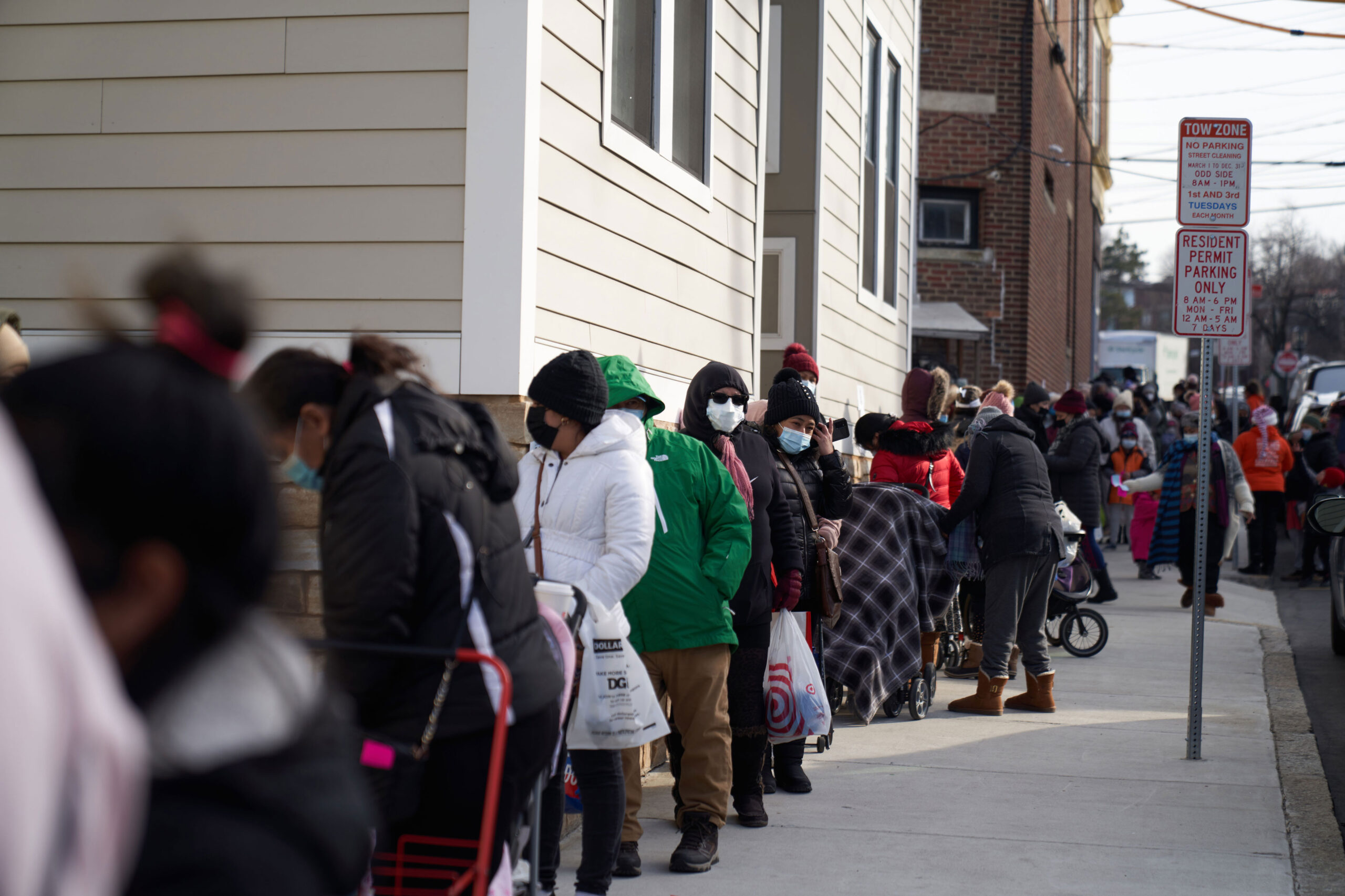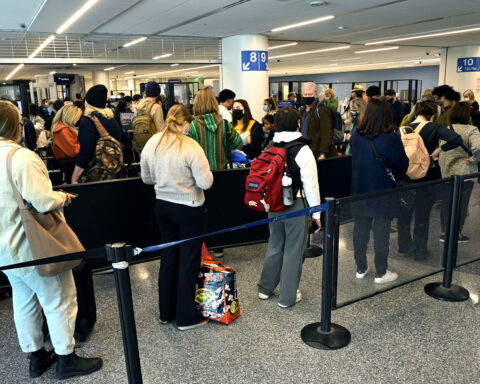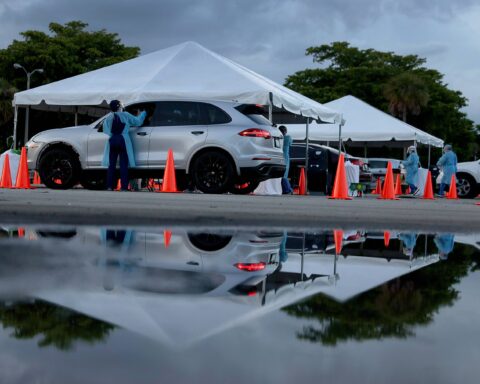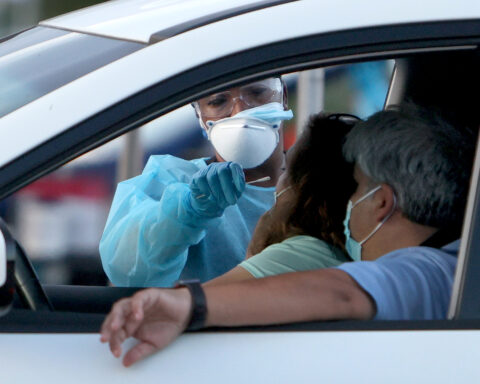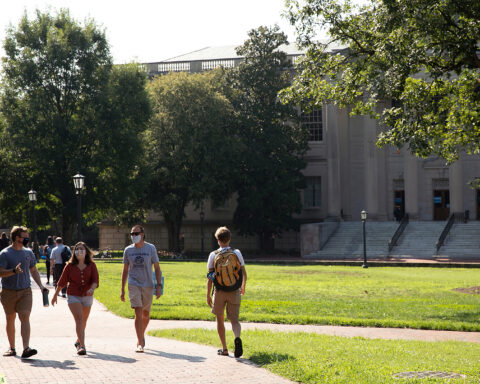With coronavirus cases surging once again, frustrated Americans are struggling to get tested days before Christmas as long lines and increased demand overwhelm some facilities across the country.
The catalyst has been the rapid spread of the Omicron variant, which has become the dominant strain in the US in a matter of weeks and has led to a slew of new measures to combat the spread.
With millions traveling or planning to join large family gatherings, there is a rush to get tested — and many people are running out of luck, either to get rapid tests at clinics or buying at-home test kits.
Long lines were seen Tuesday in New York City, Boston and Miami as well as Ohio and Minnesota.
At the same time, CVS Health and Walgreens — the two largest pharmaceutical chain stores in the US — announced they are limiting the number of at-home Covid kits customers can buy due to significant demand.
The demand is only going to grow, according to Michael Osterholm, the director of the Center for Infectious Disease Research and Policy at the University of Minnesota.
“We do have some testing. But what we’re going to need, I think, over the course of the next two to eight weeks is going to be remarkable. We are going to see this big surge nationwide,” he predicted.
“I think we are going to see all 50 states in the soup about the same time. And so, testing needs are going to go up tremendously,” Osterholm said.
And while the Biden administration plans to provide 500 million new tests by next month, the holiday test surge is happening now.
“What has happened is that we’ve seen, with the tremendous spread of Omicron, a big surge in demand for testing, and we’ve got to keep up,” US Surgeon General Vivek Murthy said Tuesday. “I certainly feel for people who are not able to find tests as easily as they want to.”
Adm. Dr. Brett Giroir, former assistant secretary of the US Health and Human Services, told CNN he’s concerned the administration’s pledge on tests will not meet the demand.
“Unless we have a billion or two billion a month, I think we’re still going to have to be selective to make sure that we keep people who can die from the disease from dying from the disease,” he said.
Hospital beds scarce in some parts of the country
The surge in cases has also led to a scarcity of hospital beds in pockets of the country.
In Delaware, ChristianaCare Hospital is running over 100% capacity, often reaching 110-115%, said president Sharon Kurfuerst.
“There are patients receiving care in hallways because that is the only place we have to put them in the Emergency Department right now,” Kurfuerst said.
She added that many people who delayed treatment for nearly two years for non-Covid-19 related health issues currently need medical attention.
“That, compounded by the amount of Covid patients that we are seeing today is really straining our healthcare system and resources,” she said.
In Ohio, six hospitals in the Cleveland area took out a page ad in the local newspaper Sunday, pleading for help.
“We need your help,” the ad read. “We now have more COVID-19 patients in our hospitals than ever before. And the overwhelming majority are unvaccinated.”
Getting vaccinated is the most effective tool to prevent serious illness. As of Tuesday, nearly 62% of the US population have been fully vaccinated while just over 30% have received a booster shot, according to data from the US Centers for Disease Control and Prevention.
Murthy, the US Surgeon General, reminded people that those who have been previously infected with Covid-19 and remain unvaccinated are not fully protected against Omicron.
“That’s not enough to be able to come to a family gathering and say ‘this is just as good as being vaccinated,'” Murthy told CNN’s Wolf Blitzer. “So if you’re not vaccinated, it is more urgent than ever to get vaccinated. If you are vaccinated, please get boosted.”
Local officials impose safety measures to combat surge
Some local officials are again imposing new regulations to curb the spread of the virus.
In Chicago, customers at most businesses that serve food or drinks must show proof of vaccination beginning January 3, Mayor Lori Lightfoot said. The measure will apply to all customers over the age of 5 at restaurants, bars, gyms, theaters, and other entertainment and sporting venues that serve food and drink.
“The unvaccinated are affecting the health, well-being, and livelihoods of all the rest of us,” Lightfoot said. “To control the spread, we have to limit the risk.”
Atlanta Mayor Keisha Lance Bottoms also moved to reinstate the city’s indoor mask mandate while the Massachusetts public health department is recommending that all residents wear a mask indoors when not in their own homes, regardless of their vaccination status, officials said Tuesday.
And in New York, the police department is seeing an increase in the number of officers calling out sick, including fully vaccinated officers, according to numbers shared with CNN by a senior NYPD official.
Will Covid-19 isolation period be reduced?
Amid the latest surge, officials are considering shortening the 10-day isolation period for those who test positive, particularly for health care workers, Dr. Anthony Fauci said Tuesday.
“For example, if you get a health care worker who’s infected and without any symptoms at all, you don’t want to keep that person out of work too very long .. particularly if we get a run on hospital beds and the need for health care personnel,” said Fauci, who is the director of the National Institute of Allergy and Infectious Diseases.
The isolation period also affects airline staffing, prompting Delta Air Lines officials to ask the CDC to reduce the period to five days as Christmas approaches — adding that more than 90% of its workforce is vaccinated.
Murthy said officials are conducting analysis on whether it’s safe to shorten the isolation period.

